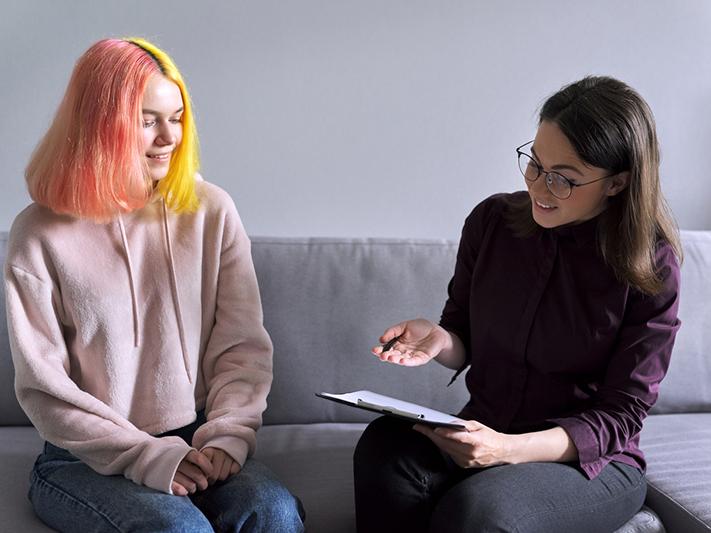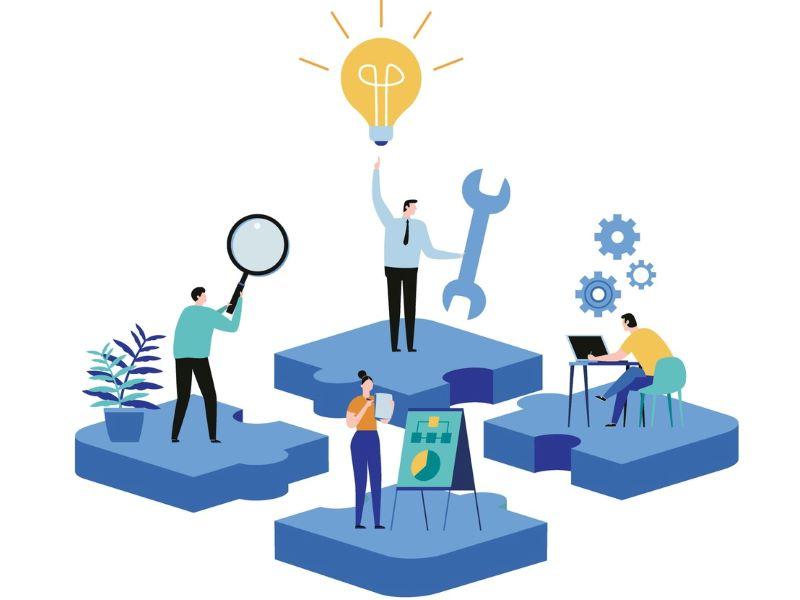
What simulations bring to teaching soft skills
When technical knowledge is easily accessible via the internet and AI, employers will continue to expect graduates to have well-developed soft skills. Those interpersonal and intrapersonal abilities that enable effective communication, collaboration and problem-solving will be no less sought in work and professional practice environments.
For educators, teaching and assessing these skills is a perennial challenge. Balancing the need to teach theory and content knowledge along with the need for innovative pedagogy can dissuade even motivated academics from prioritising these skills.
How, then, can we bridge the gap between theory and practice to cultivate the soft skills necessary for the modern workforce? In the School of Psychology and Wellbeing at the University of Southern Queensland, the answer lies in the power of simulated environments. The school’s new social work programme has created a range of virtual and physical environments via its SkillShare lab to assist in building its students’ soft skills.
What are soft skills?
Soft skills are necessary for effective person-to-person interaction; they include active listening, empathy, critical thinking, cultural competency, reflection, teamwork and self-care. For students in psychology, social work and counselling programmes, these skills are the bedrock of much of their degree. For other disciplines, they still make up an important skill set in a modern workforce. Unlike technical skills, which can be readily measured through tests, soft skills are developed relationally, manifest in interactions and require a deeper understanding of human behaviour. Traditional assessment methods such as multiple-choice questions are inadequate in assessing a student’s ability to apply that knowledge in real-world scenarios, as soft skills are embodied skills – we live them in our bodies as much as we have a cognitive understanding of the theory. In fields such as psychology and social work, the person themself is the practice tool, and relating and listening are key to effective therapy.
Simulated environments to teach and assess soft skills
Simulated environments may provide a bridge in the teaching and assessing of soft skills. They offer students safe, structured learning with immersive capacity. Simulated environments can include peer-to-peer role playing in a classroom, having actors play out a scenario in a faux hospital room, or using a virtual-reality (VR) headset with 360-degree audiovisual experience. Each method has its own benefits and drawbacks. Elizabeth Baker and Angelique Jenny, both scholars from the University of Calgary, conducted a scoping review in 2022 and found a wide range of uses for simulated learning environments, in particular their capacity to build soft skills across a range of experiences such as family conflict, mental health issues and environmental hazards.
- Resources to help academics develop transferable skills
- How to leverage LLMs to assess soft skills in lifelong learning
- Tried and tested ways to teach your students soft skills
Simulating those environments can prepare students for what is likely to happen on placement and further into their careers and improve career resilience. This is valuable as social workers and psychologists are vulnerable to vicarious trauma early in their careers from the emotional impact of stories of violence and trauma they may hear from clients. Real-life incidents students may encounter during placements and after study are also fraught with challenge and risk.
Immersion in the experiences is part of the effectiveness of simulated environments being offered at the SkillShare Studios. For example, using a VR headset or a computer, social work students can watch a simulated child safety investigation or one that addresses elder abuse. Co-design to create the simulations uses individuals’ lived experiences to encapsulate a real-life experience and affords opportunities for experiential learning.
Benefits and limitations of VR simulations
VR simulations can be used to assess a variety of soft skills. They can, for example, capture a multi-sensory real-life experience. These simulations incorporate spatial audio – or, more simply, background noise such as a barking dog or a crying baby – as well as interactions with other key service providers (such as police officers) who regularly participate in the interventions provided in practice. The educational programme exposes students to scenarios that highlight potential problematic attitudes and beliefs held by service providers, such as subtle victim-blaming, as well as the reactions these could elicit from community members, including sadness or anger. Educators can then explore what the student noticed and assess their observation and empathy skills. They could ask the student to record how they would communicate the message differently (which indicates their micro-counselling, reflection and communication skills) or ask how they could discuss the issue with the service provider (allowing the student of show conflict-management skills).
VR experiences also ensure standardisation for the purpose of assessment. While these simulations need investment to set up, they can be reused and allow scenarios to be tailored to assess specific soft skills.
However, VR simulations do not always allow the student to interact directly with the characters, and this passive aspect may limit students’ ability to demonstrate their skills “live”.
What role-play brings to soft skill acquisition
Unlike VR, real-life role play allows for dynamic teaching and assessment experiences. Well-designed scenarios can be particularly effective in developing students’ soft skills. For example, a role-playing exercise could simulate a social work team meeting where students practise collaborative problem-solving and communication as they discuss a client’s case. This can highlight conflict resolution and effective communication within a team dynamic. Similarly, role-playing exercises can be used to simulate client interviews, ethical dilemmas or public-speaking situations, allowing educators to tailor scenarios to learning objectives and skill areas. Further, these spaces allow students to practise with their peers. As students role-play being a client, it can deepen their understanding and appreciation of how skilful and unskilful interactions affect them.
The SkillShare lab replicates typical scenarios for social work, psychology, human services or counselling. Environments include a therapy room, a living room, a kitchen, a hospital bed and a case conference space. Each space has discrete viewing rooms attached and has recording equipment for teaching and assessment.
Simulated environments provide a safe and structured way to expose students to situations where they learn and reflect on their soft skills. They cannot replace the richness of real-life interactions, however. We believe providing a variety of simulated experiences is a meaningful way to bridge students’ experiences from theory to practice. These opportunities should be paired with or extended by work-integrated learning and placement experiences.
They also provide a closer representation of a student’s skills for the purpose of assessment or deciding a student’s readiness for a placement or graduation. While we acknowledge that both in vivo and virtual simulations can involve upfront costs, the capacity to reuse and reimagine these offer countless opportunities for authentic learning and assessment.
Daniel Brown is a lecturer in psychology, and Krystal Schaffer and Kim Stewart are lecturers in social work and human services, all in the School of Psychology and Wellbeing at the University of Southern Queensland.
If you would like advice and insight from academics and university staff delivered direct to your inbox each week, sign up for the Campus newsletter.




